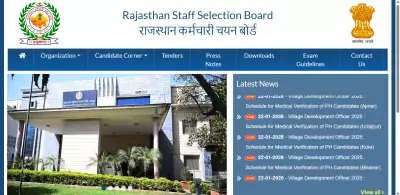
The Board of Secondary Education Karachi (BSEK) finds itself at the center of a major controversy as its ambitious shift to digital evaluation has backfired spectacularly, leaving thousands of Class 9 students in academic limbo.
Digital System Collapse Creates Chaos
What was supposed to be a modernization effort has turned into an educational nightmare. The board's newly implemented e-marking system, designed to streamline the evaluation process, has completely failed during its inaugural run. The technical breakdown has resulted in an unprecedented situation where students who appeared for their exams now have no official record of their performance.
Students' Futures Hang in Balance
The timing couldn't be worse for affected students. Without official mark sheets, they face multiple barriers:
- Inability to secure admissions to higher classes
- Blocked from applying to colleges and other institutions
- Academic year potentially delayed indefinitely
- Mental distress and uncertainty about their educational future
Parental Outrage and Protests
Frustrated parents have taken to the streets, expressing their anger at what they perceive as gross incompetence. "Our children's futures are being toyed with due to technical experiments that weren't properly tested," said one protesting parent outside the BSEK office.
The protests have grown increasingly vocal as parents demand immediate solutions and accountability from board officials. Many are calling for traditional marking systems to be reinstated until the digital infrastructure is proven reliable.
Board's Response Under Scrutiny
BSEK officials have acknowledged the technical failure but have been vague about specific timelines for resolution. The board claims to be working round-the-clock to address the issues, but their assurances have done little to calm the growing storm of criticism.
Education experts are questioning the wisdom of implementing untested digital systems during critical examination periods without adequate backup plans. The incident raises serious concerns about Pakistan's digital transformation in education and whether proper safeguards were in place.
Broader Implications for Digital Education
This failure serves as a cautionary tale for educational institutions across South Asia rapidly adopting digital solutions. The Karachi incident highlights the critical need for:
- Robust testing of new systems before full implementation
- Comprehensive contingency plans for technical failures
- Gradual transition periods rather than abrupt system changes
- Proper training and infrastructure support
As the crisis continues to unfold, all eyes remain on the Karachi Board to see how quickly they can resolve the technical issues and restore normalcy for the affected students.





